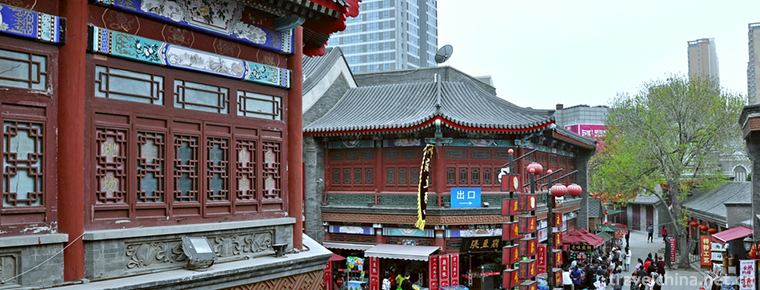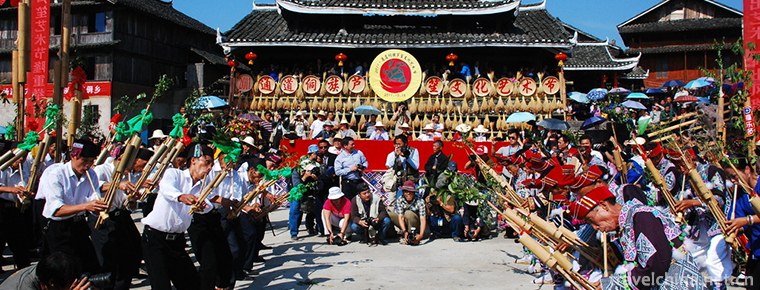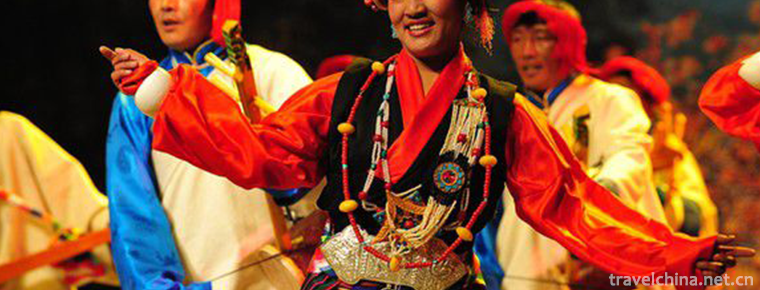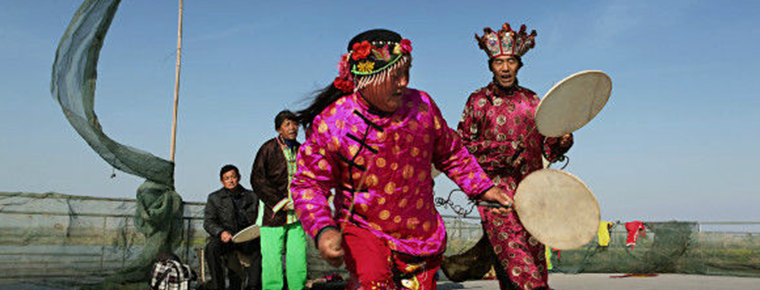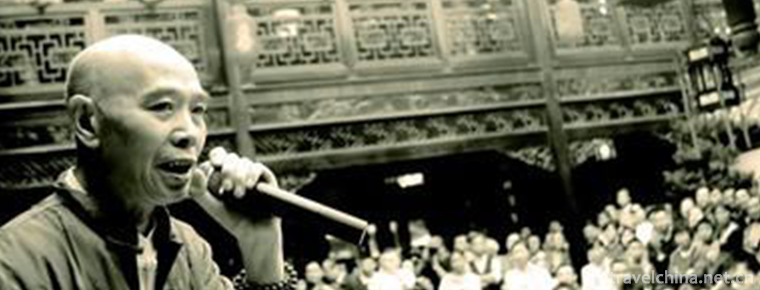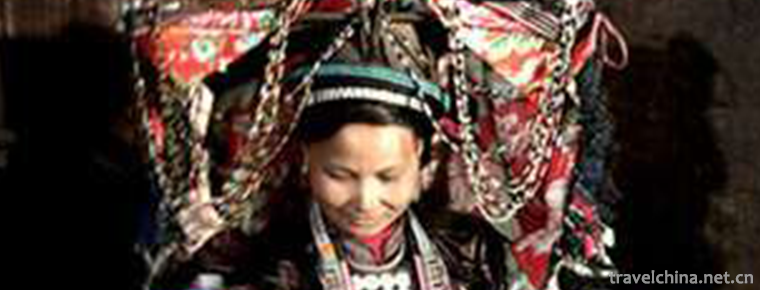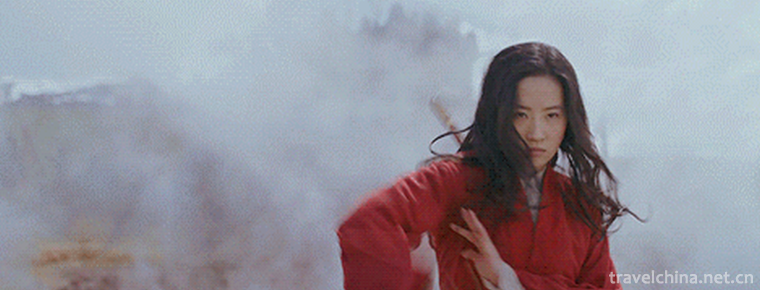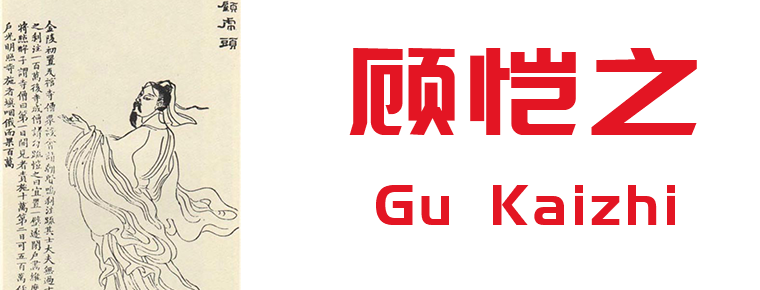Drum bowl song
Drum bowl song
Drum-pot song is a very ancient traditional form of music and art in Hubei Province of China. It originates from the traditional folk activities of "beating a pot as a drum, singing with the funeral family" in ancient China. It is also known as "funeral drum", "funeral drum song" and "funeral drum beating". Its specific formation age has not been confirmed. Drum-pot song is popular in Shashi, Jingzhou and Jiangling of Jianghan Plain. Its performance is usually solo or duet singing by one or two people playing drum-board by themselves. In folk performances, enthusiastic listeners can also participate in helping tunes, that is, singing together at the beginning and the end of each Lyric paragraph, there is also an unaccompanied solfeggio form; in addition, drum-pot song refers to an allusion about Chuang Tzu.
In 2006, drum and potted songs were listed in the national intangible cultural heritage list.
Historical origin
The origin of drum-pot songs can be traced back to the records of the Book of Songs and the Book of Changes. The coexistence of entertainment content and funeral custom lasted for a long historical period. During the Warring States Period, it became one of the three major categories of the expression forms of Chinese national music. The death of Zhuangzi's wife during the Warring States Period and the song of drums and basins further led to the funeral of drums and basins. By the Han Dynasty, Huan Kuan's On Salt, Iron and Scattered Insufficiency contained: "In the past, folk drinks were held in the form of Party customs and playing kites and drums." "Huainanzi Spiritual Training" contains: "Today's husband's poor society also, tapping pots, and singing in harmony, think they are happy." After the Tang Dynasty, the entertainment elements of "drum basin and battering cap" gradually decreased, and the saying of "drum basin's relatives" appeared in the Song Dynasty.
Quyi
form
Hubei Xiaoqu is rich in singing tunes. The commonly used singing tunes are "Nanqu Tou", "Nanqu Zhengban", "Nanqu Tail", "Tanhuang Diao", "Wenci Diao", "Xiqiang", "Siping", "Yinnusi", "Overlapping Bridge", "Siwugeng" and so on. Hubei Xiaoqu is mainly composed of singing and rap. In its early stage, it mostly sings folk stories in the form of syntheses. It can be sitting and singing in teahouses and restaurants, selling "sang" in the street, or participating in the festive banquets of villagers. The traditional repertoires of Hubei Xiaoqu include Nanqu's "Grabbing Umbrella", "Qiujiang", "Tiaofen Wall", Xiqiang's "Copying Red", "Yingying's Travel", "Miss Lover" and so on; Songjiang's "Killing Cherish" and "An'an Sending Mi" in Ci. Most of the Western tunes are sung by artists of Tianbiao Xiaoqu, and share the same clan with the Western tunes in Tianbiao Huagu Opera. The repertoire of Hantan Xiaoqu includes "Qiujiang", "Grabbing Umbrella", "Hongniang Delivery Card" and so on. The repertoire of Tian Miao's minor songs include Torture of the Red Maiden, Supplementary Backpack, Sparrow Song, Bronze Money Song and Photo Flower Platform, etc. New repertoires include Watching the Iron Niu, Lei Feng Joining the Army, Jiang Jie Jinshan (above is Hantan Xiaoqu), and Running the Yangko (Tianwu Xiaoqu), etc.
inherit
Around the 1930s, some artists accompanied the puppet show with Hantan Opera Brand, and a number of long pieces called "Big Frame" appeared, such as "Biography of White Snake", "Qin Xuemei", "Qiujiang", "Grabbing Umbrella" and "Double Downhills". During the War of Resistance Against Japan, artists in Jingzhou and Shashi also sang in the square "arousing the people" and "leaving home to repay the country" to publicize the new repertoire of anti-Japanese and national salvation.
After the founding of the People's Republic of China, in order to enhance the expressive power of ditty music and meet the needs of expressing new contents, in some traditional and new works, apart from maintaining the characteristics of various tunes, tunes and other ditties were often borrowed from each other, and some new tunes, such as Lei Feng's Joining the Army and Jiang Jie Jinshan, were created. Make Xiaoqu art get new development. The traditional repertoire of Hubei Xiaoqu originally had more than 300 repertoires, and more than 180 repertoires were handed down. Xue Rengui's Expedition to the East and Xue Dingshan's Expedition to the West can be sung continuously and menstruation is not interrupted. Short repertoire, generally available for a night (day) performance, such as "copy red", "autumn red river", "grab umbrella", "Su Wenbiao borrow clothes", "Xigong Ci" and so on. Hubei Tujia Xiaoqu performance singing - representative figure of Hubei Xiaoqu: Hubei Xiaoqu veteran artists include Zhang Mingliang, Yu Yi He, Gan Faxin, etc. Since the 1960s, Wuhan Rap Troupe has successively sung Hubei Xiaoqu by Mao Guixian and Zhou Yanqin. Xia Yutian's Hubei Xiaoqu "An Unforgettable Lesson" won the first prize of national opera creation.
Famous person
He Zhonghua is a famous Xiaoqu performing artist in Hubei Province. During her 45 years of artistic career, she has created and performed a large number of Hubei Xiaoqu programs with Jingchu cultural characteristics. In the performance, she and her disciples performed the Hubei ditty Qinyuan Spring Snow. Her sweet voice, mellow singing and calm performance won thunderous applause from the audience. The representative repertoires of Hubei Tujia Xiaoqu performing singing-representative repertoire dish Xiaoqu include Kite Flying, Nine Links, Ten Thoughts, Ten Embroideries, etc. After 1949, Hantan Xiaoqu was put on the stage, enriching the music, enriching the band and increasing the performance. A number of popular new songs have emerged, such as "Lei Feng joined the army", "Jiang Jie entered the mountains", "Sankao Xianmei", "Xiwang returned home" and the new historical repertoire "Selected Princess" and so on. Now it has developed into one of the most widely spread and influential silk-string ditties in Hubei Province. At the invitation of the Japan Friendship Association for Overseas Singing and Singing of Tujia Xiaoqu in Hubei Province, Liu Lanfang, a well-known book-reviewing artist, led Chinese local opera artists to Tokyo for a friendly performance visit. Yao Liling, an excellent Hubei Xiaoqu actor of the rap troupe, also visited with him. This is the first time that Hubei Xiaoqu has crossed the country. The troupe consists of nine members, including Jingyun Dagu and Suzhou Pingtan, among which Hubei Xiaoqu is the first. Hubei Xiaoqu is a unique form of folk art in Hubei Province. It is one of the four major types of music and belongs to the miscellaneous music of drums. Yao Liling, 28, graduated from Northern Quyi School in 1997 and was taught by He Zhonghua, a famous Hubei Xiaoqu performing artist. She also studies Tianzhao, Hantan and other music styles. Her voice is sweet and typhoon is steady. She is one of the few inheritors of Hubei Xiaoqu at present. This time, Yao Liling will perform "Kite Flying", "Yellow Crane Tower" and other programs of Hubei Tujia Xiaoqu performance singing-music research He Zhonghua's exploration of the origin of Hubei Xiaoqu, taking the main tune of Hubei Xiaoqu as an example, using quantitative and qualitative analysis method, music morphology analysis method, comparative induction method, etc., to make the predecessors'perceptual knowledge and put forward various possibilities. Through comparison and demonstration, we will continue to explore the relationship between Han Opera and it. It also explores the development and changes of the melody, structure, singing style, theme and content of its music in different historical periods. At the same time, through the investigation of its current situation, combined with the knowledge of history, geography and other related disciplines, this paper explains the reasons for the prosperity of the past and the decline of the present from the perspective of culture, and probes into the problems of its future development. Hubei Xiaoqu is an endangered rap music.
Characteristic
Historical allusions
When Chuang Tzu's wife died, Hui Tzu went to mourning and saw Chuang Tzu sitting with his legs outstretched and singing on a pot of earthen tiles. He felt very strange and blamed Chuang Tzu for his inhumanity. Zhuangzi said, "Death is a return, and the changes of human life and death are like the four seasons running. Isn't it unreasonable that people have quietly rested in nature and I am still crying? That's why I stopped crying. (from Zhuangzi Zhile)
Later, "Drum Pot Song" was used to express the attitude towards life and death, and also to express the loss of wife.
Inheritance significance
Because the performance of drum pot song is closely related to folk customs, it has multiple values of folklore, sociology and culture besides the value of art itself. Today, with the acceleration of modernization, the drum-pot song, like other folk art forms, is facing a survival crisis, which needs to be paid attention to and protected.
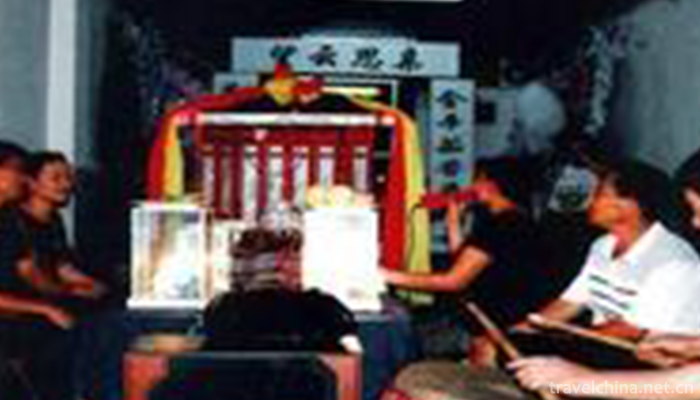
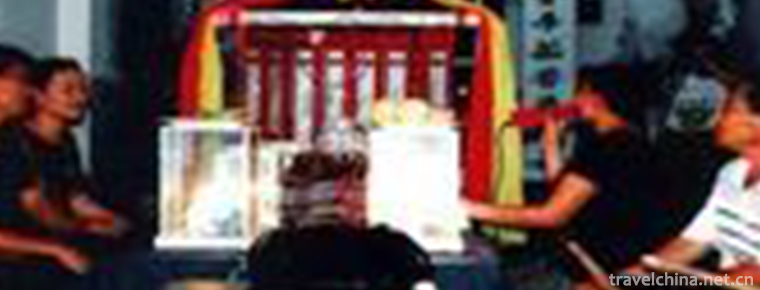
Drum bowl song
-
Tianjin Ancient Culture Street Tourist Area Jinmen Hometown
Tianjin Ancient Culture Street is located outside the east gate of the northeast corner of Nankai District of Tianjin City and on the West Bank of Haihe River
Views: 266 Time 2018-11-24 -
Ancient songs of Miao Nationality
Miao Ancient Songs, local traditional folk literature in Taijiang County and Huangping County of Guizhou Province, is one of the national intangible cultural heritage.
Views: 272 Time 2018-12-15 -
Three Parallel Rivers of Yunnan Protected Areas
The three rivers running side by side are Jinsha River, Lancang River and Nujiang River, three rivers originating from the Qinghai-Tibet Plateau, running 170 kilometers from north to south in Yunnan P
Views: 93 Time 2018-12-19 -
Definite day harmonics
Dingriluo Harmony Dingriluo Harmony, the second batch of national intangible cultural heritage list of the People's Republic of China. It is the main form of folk singing and dancing in Dingri County
Views: 203 Time 2019-04-27 -
Fishing Drum of Hongze Lake
The fishing drum of Hongze Lake, also known as Duan Encouragement, is a form of dance in which the singing and dancing were combined in a specific area when the old Shenhan burned paper for fishermen
Views: 232 Time 2019-05-03 -
Sichuan Book Review
Sichuan commentary, also known as vernacular speech and commentary, is one of the traditional operas in Sichuan Province. It is popular in all parts of Sichuan and Yunnan and Guizhou. The performers t
Views: 147 Time 2019-06-16 -
Yao Nationality Medicine
Yao medicine is a traditional medicine summarized by the Yao people in their struggle against diseases. It has systematic medical theory and rich clinical experience. It has distinct national and loca
Views: 204 Time 2019-07-11 -
Hua Mulan Movie
Mulan is produced by Walt Disney Studios. Niki Caro Directing, Liu Yifei , Donnie Yen , Gong Li , Jet Li A live action movie starring. The file was released in North America in March 27, 2020.
Views: 196 Time 2019-09-04 -
Gu Kaizhi
Gu Kai Zhi (348 to 409 years), the word is long, the small character tiger. Han nationality , Jin Ling Wuxi people (now Wuxi, Jiangsu province). Outstanding painter, painting theorist and poet. Becaus
Views: 186 Time 2019-09-07 -
Anhui University Of Science & Technology(aust)
Anhui University Of Science And Technology is located in Anhui province. Huainan City Yes. Anhui higher education revitalization program Local characteristics High level University Construction, proje
Views: 564 Time 2019-10-10 -
Xiaoxiangling scenic spot
The synonym Xiaoxiangling generally refers to Xiaoxiangling scenic spot
Views: 172 Time 2020-10-16 -
Guangan Airlines
There is no airport in Guang'an, but there are many airports around it. At the same time, Guang'an terminal building of Chongqing Jiangbei International Airport has been built in the urban area. Guang'an is 110 kilometers away from Chongqing Jian
Views: 183 Time 2020-12-19
